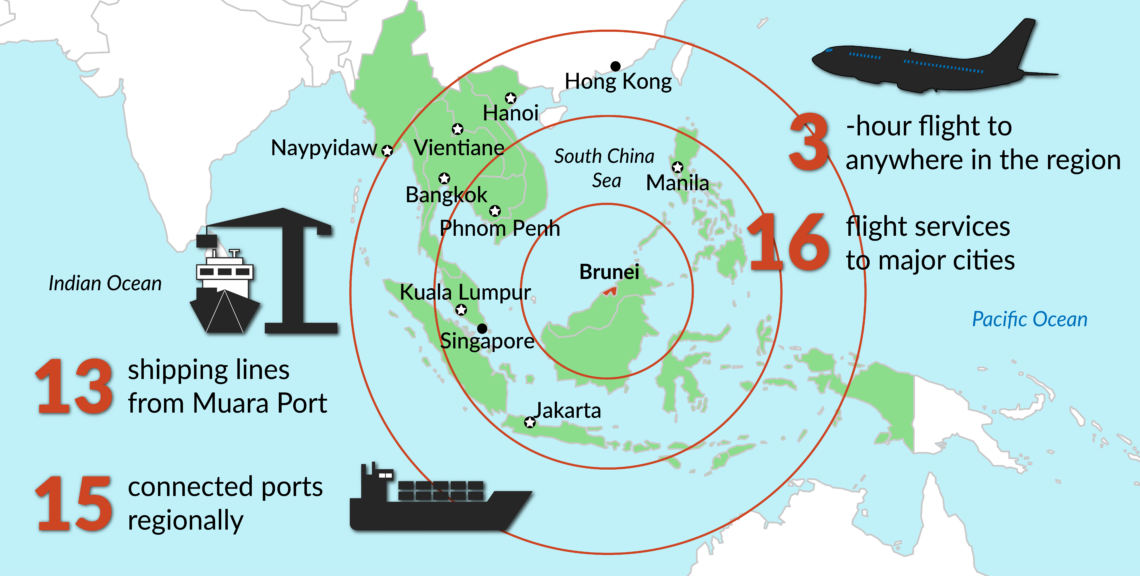Brunei, a case of missing an opportunity
As its oil and natural gas reserves near depletion, Brunei is searching for ways to diversify its economy, but thus far the only country willing to invest in the strategically located sultanate is China. Europe, the United States and Japan are missing on an important business and geopolitical opportunity in Southeast Asia.

In a nutshell
- Brunei’s oil and natural gas reserves are nearing depletion
- The country is offering numerous advantages to investors as it tries to diversify its economy
- Its bid for more business deserves more interest in the West
With a little over 400,000 inhabitants, Brunei may be a tiny country, but it is strategically located on the northern coast of the huge island of Borneo, which sits on the outer rim of the South China Sea. It oversees access from the South China Sea to Singapore and the most important transport link between the Pacific and Indian Oceans, the Strait of Malacca.
Politically, Brunei is a stable Islamic hereditary monarchy. Its population consists mainly of Muslim Malays, with a Han Chinese minority of some 15 percent. The country is a member of the Association of Southeast Asian Nations (ASEAN). In foreign policy, Brunei works closely with Singapore. Also, it is a participant of the revised Trans-Pacific Partnership (TPP-11) free trade pact.
Exploitation of oil and natural gas has made Brunei very rich – the International Monetary Fund ranks the country fifth in the world (by gross domestic product per capita at purchasing power parity). As is the case with many other exporters of hydrocarbons, though, its economy is overly dependent on the resource, which is bad given that Brunei’s oil and gas fields will be depleted in some 20 years. Foreign companies, mainly Royal Dutch Shell, have already halted their investments in the country. In consequence, Western banks, such as Barclays and HSBC, have closed their branches there, too. British interests in Brunei extended to close defense cooperation.
This is a typical example of how China’s long-term strategy works to line up allies and dependent partners.
Faced with the prospect of drying reservoirs, Brunei has been striving for some time to diversify its economy. Attracting companies to the small country, however, proved a hard sell in Japan, the United States and Europe, Brunei’s preferred partners. Arguably, investors are missing out on an opportunity, as local financing would not be a problem and for some businesses, Brunei could be an interesting alternative to Singapore.
Thus far, the sultanate’s revenues have been sufficient for it to avoid falling into a strong dependence on China. But new business is coming only from there. Chinese companies are building a new refinery and port installations in Brunei. Two years ago, the Bank of China replaced Barclays and HSBC as the main international bank there. Unsurprisingly, trade with China is emphasized in its underwriting.
This is a typical example of how China’s long-term strategy works to line up allies and dependent partners along the trading routes that Beijing builds in Eurasia. It was described by GIS Expert Henrique Schneider in his report on China’s Belt and Road Initiative. One of its two main parts, the so-called 21st Century Maritime Silk Road, has been designed to secure Chinese access to European and African markets.
From China’s standpoint, this is a wise approach and a legitimate enterprise. As the case of Brunei shows, though, Europe, the U.S. and Japan could pursue their economic and strategic interests in the region with more foresight and determination than appears to be the case now.
